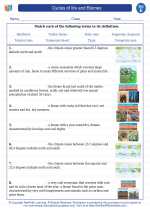Boreal Forest
The boreal forest, also known as the taiga, is a biome characterized by its cold climate and coniferous trees. It is the largest terrestrial biome on Earth, stretching across North America, Europe, and Asia.
Climate
The boreal forest experiences long, cold winters and short, mild summers. The average annual temperature is below freezing, and precipitation is relatively low.
Flora and Fauna
Coniferous trees such as spruce, fir, and pine dominate the boreal forest. Other plant species include lichens, mosses, and shrubs. Common animals found in this biome include moose, wolves, bears, lynx, and various bird species.
Soil
The soil in the boreal forest is acidic and nutrient-poor, which is a result of slow decomposition due to the cold climate. This affects the types of plants that can thrive in this biome.
Human Impact
Human activities such as logging, mining, and oil and gas extraction have significantly impacted the boreal forest. Conservation efforts are underway to protect this vital ecosystem and its biodiversity.
Study Guide
- What are the characteristics of the boreal forest climate?
- Which types of trees dominate the boreal forest?
- What are some common animal species found in the boreal forest?
- How does the soil in the boreal forest differ from other biomes?
- What are some human activities that have impacted the boreal forest?
◂Science Worksheets and Study Guides Fifth Grade. Cycles of life and Biomes
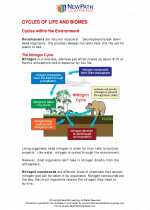
 Worksheet/Answer key
Worksheet/Answer key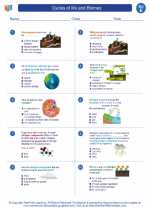
 Worksheet/Answer key
Worksheet/Answer key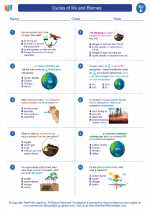
 Worksheet/Answer key
Worksheet/Answer key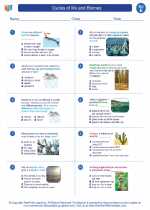
 Worksheet/Answer key
Worksheet/Answer key
 Vocabulary/Answer key
Vocabulary/Answer key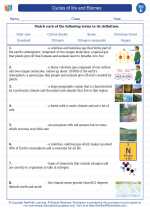
 Vocabulary/Answer key
Vocabulary/Answer key